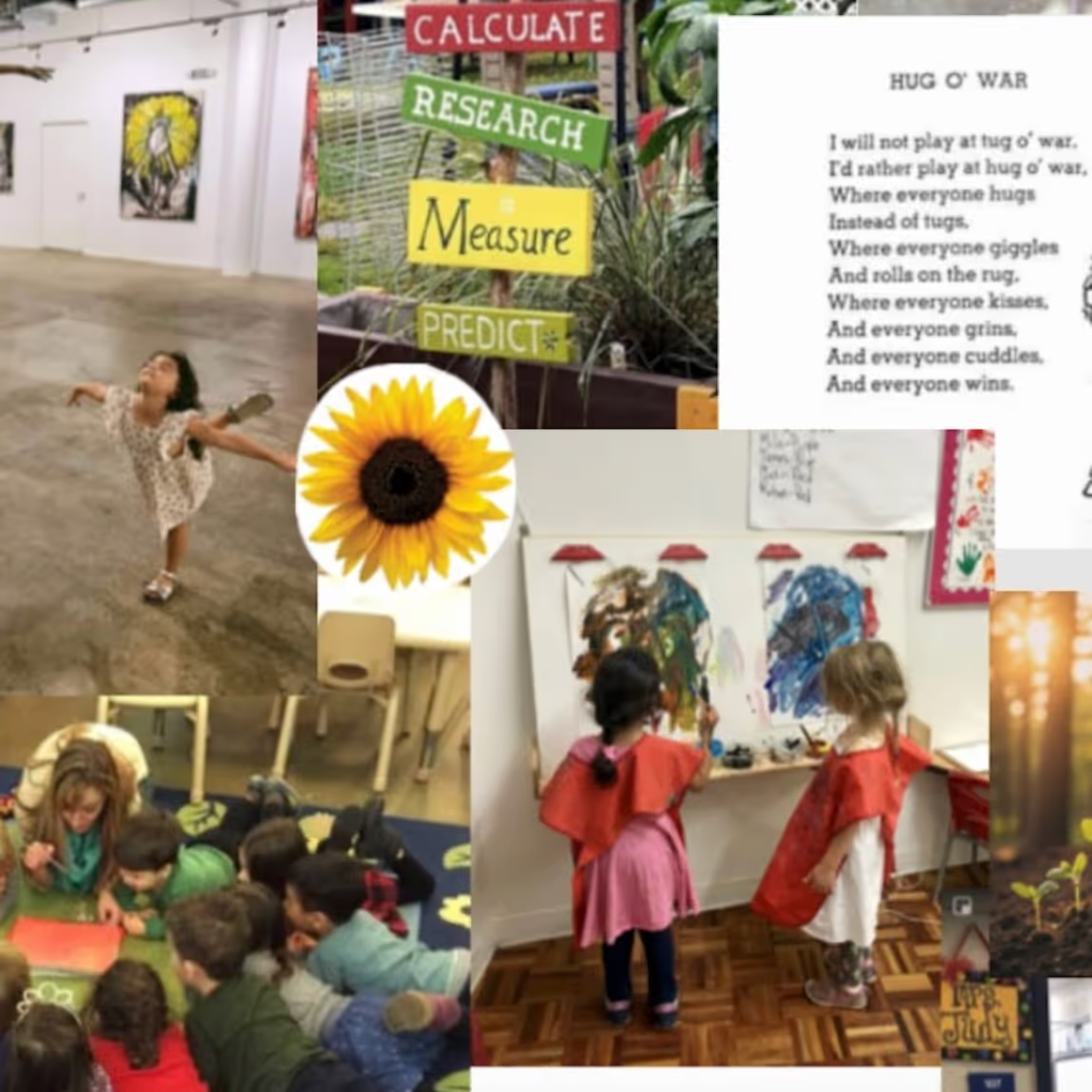


Many young people are being drawn to AI companion bots, sometimes without recognizing the emotional risks. Hearing Aza Raskin describe how these tools exploit intimacy pushed me to help families talk about this clearly. I created a five-step guide to explore why someone might use a companion bot, the dangers involved, and what healthy rules can look like. These conversations also encourage kids to notice peers who may be lonely and to revisit these issues regularly as the technology evolves.
“The fundamental paradox of technology is that the more intimately it knows us, the better it can serve us and the better it can exploit us.”
Asa Raskin is a tech designer known for coining the term "infinite scroll" and for his work on technology ethics. — from Your Undivided Attention Podcast
Hi Everyone,
Delaney here, not a chatbot but rather a human who is deeply concerned about AI companion bots.
I am so concerned, in fact, that I wrote a blog last week on this topic, just released a podcast episode yesterday, and now this blog.
Help is needed because Silicon Valley is in a race to create and monetize large learning platforms to be human companions. And, as many of you know, a young boy recently took his life while in the midst of a really disturbing “relationship” with such a “companion.”
Let me share another recent quote by Aza Raskin:
“...the question to be asking is, is intimacy more valuable to a company than just mere attention? And the answer is yes, that there is a race therefore to colonize, to commodify intimacy. And that's just not an abstract thing that we say, that's a real thing, which is now causing the death of human beings.”
I have created a step-by-step guide to help you discuss all this with your kids. This can be modified if you talk with young people who are not your kids, such as students, a scouting troop, extended family, etc.
Learn more about showing our movies in your school or community!
Join Screenagers filmmaker Delaney Ruston MD for our latest Podcast

Learn more about our Screen-Free Sleep campaign at the website!
Our movie made for parents and educators of younger kids
Learn more about showing our movies in your school or community!
Before the steps, let me offer this tip on how to have the discussion. Communication science tells us that when we ask kids and teens questions because we really want to understand their points of view, they feel respected and thus more motivated to participate in the conversations.
The steps
The more kids answer the question versus our offering reasons, the more their analytical thinking comes on board, and the greater the chance they may find themselves contemplating the questions after the discussion.
Let kids come up with as many as they can.
(Pro tip: repeat some things in your own words to them; it helps them feel heard. Remember, people want to be heard as much as they want what they think they want.)
I invite you to consult my blog from last week for ideas (titled, Super Scary Snapchat Chatbot AI And Other Chatbot Companions.)
It is important to talk about what we want for our kids and our expectations and rules. Yes, kids can get around rules, but research shows that the chances are less that this will happen if we have rules in place. We explain our reasoning around rules and take into account our kids’ feelings and opinions.
I think it is very reasonable to say to a 13-16 year old (and other ages where you feel appropriate), something like this:
Silicon Valley is racing to create these AI companions, but they often have no safeguards. For example, if a young person talks about self-harm or thoughts of suicide, a chatbot with responsible safeguards may offer resources for seeking help and also says it can’t have conversations about that. Yet, many of these other platforms have not built in such safeguards. For now, we want to have the rule that it is not okay to use AI chatbot companions.
Of course, you should think about this as the parent/ parents and have discussions with kids. I can not say the rule for your family.
Let me add that Character AI, the platform that the 14-year-old became immersed in when he took his life, is for 13 and older people. I just think it is awful that 13-year-olds can access such a bot, and there are other ones for kids aged 13. Let alone there is no age-gating, so kids younger than 13 can have access by lying about their birthdate.
These “empathy chatbots,” as some in Silicon Valley call these companions, are being touted as a reasonable approach to helping the lonely. I don’t buy it. Whatever your views on this, one thing we can all agree on is people who are struggling and feeling lonely need support. We can also agree that we all want kids to be helpers now and move in their lives.
So, I suggest saying to kids something like the following:
Of course, one reason people will be pulled into connection with an AI companion is due to loneliness. Let's commit to all being on the lookout for people we think might be feeling lonely and we can talk about ways that we might help them.”
Decide together some specific times that you will revisit these topics, explaining that this is all brand new and that, frankly, we need our youth to grapple with these complex ethical issues.
After all, their ideas are key now and are needed as future leaders.
In terms of picking times to discuss companion A.I.s, how about proposing the first night of each month for the next three months? At that time, you will all check in with each other about the four steps above, such as discussing people who seem lonely and ways that can possibly help them.
I recommend putting the dates you suggest on a large, visible paper calendar. To add some lightness to this hard topic, maybe pair it with roasting a few marshmallows over a stovetop.
Learn more about showing our movies in your school or community!
Join Screenagers filmmaker Delaney Ruston MD for our latest Podcast

Learn more about our Screen-Free Sleep campaign at the website!
Our movie made for parents and educators of younger kids
Join Screenagers filmmaker Delaney Ruston MD for our latest Podcast
Be sure to subscribe to our YouTube Channel! With new ones added regularly, you'll find over 100 videos covering parenting advice, guidance, podcasts, movie clips and more. Here's our latest!
As we’re about to celebrate 10 years of Screenagers, we want to hear what’s been most helpful and what you’d like to see next.
Please click here to share your thoughts with us in our community survey. It only takes 5–10 minutes, and everyone who completes it will be entered to win one of five $50 Amazon vouchers.
“The fundamental paradox of technology is that the more intimately it knows us, the better it can serve us and the better it can exploit us.”
Asa Raskin is a tech designer known for coining the term "infinite scroll" and for his work on technology ethics. — from Your Undivided Attention Podcast
Hi Everyone,
Delaney here, not a chatbot but rather a human who is deeply concerned about AI companion bots.
I am so concerned, in fact, that I wrote a blog last week on this topic, just released a podcast episode yesterday, and now this blog.
Help is needed because Silicon Valley is in a race to create and monetize large learning platforms to be human companions. And, as many of you know, a young boy recently took his life while in the midst of a really disturbing “relationship” with such a “companion.”
Let me share another recent quote by Aza Raskin:
“...the question to be asking is, is intimacy more valuable to a company than just mere attention? And the answer is yes, that there is a race therefore to colonize, to commodify intimacy. And that's just not an abstract thing that we say, that's a real thing, which is now causing the death of human beings.”
I have created a step-by-step guide to help you discuss all this with your kids. This can be modified if you talk with young people who are not your kids, such as students, a scouting troop, extended family, etc.
Before the steps, let me offer this tip on how to have the discussion. Communication science tells us that when we ask kids and teens questions because we really want to understand their points of view, they feel respected and thus more motivated to participate in the conversations.
The steps
The more kids answer the question versus our offering reasons, the more their analytical thinking comes on board, and the greater the chance they may find themselves contemplating the questions after the discussion.
Let kids come up with as many as they can.
(Pro tip: repeat some things in your own words to them; it helps them feel heard. Remember, people want to be heard as much as they want what they think they want.)
I invite you to consult my blog from last week for ideas (titled, Super Scary Snapchat Chatbot AI And Other Chatbot Companions.)
It is important to talk about what we want for our kids and our expectations and rules. Yes, kids can get around rules, but research shows that the chances are less that this will happen if we have rules in place. We explain our reasoning around rules and take into account our kids’ feelings and opinions.
I think it is very reasonable to say to a 13-16 year old (and other ages where you feel appropriate), something like this:
Silicon Valley is racing to create these AI companions, but they often have no safeguards. For example, if a young person talks about self-harm or thoughts of suicide, a chatbot with responsible safeguards may offer resources for seeking help and also says it can’t have conversations about that. Yet, many of these other platforms have not built in such safeguards. For now, we want to have the rule that it is not okay to use AI chatbot companions.
Of course, you should think about this as the parent/ parents and have discussions with kids. I can not say the rule for your family.
Let me add that Character AI, the platform that the 14-year-old became immersed in when he took his life, is for 13 and older people. I just think it is awful that 13-year-olds can access such a bot, and there are other ones for kids aged 13. Let alone there is no age-gating, so kids younger than 13 can have access by lying about their birthdate.
These “empathy chatbots,” as some in Silicon Valley call these companions, are being touted as a reasonable approach to helping the lonely. I don’t buy it. Whatever your views on this, one thing we can all agree on is people who are struggling and feeling lonely need support. We can also agree that we all want kids to be helpers now and move in their lives.
So, I suggest saying to kids something like the following:
Of course, one reason people will be pulled into connection with an AI companion is due to loneliness. Let's commit to all being on the lookout for people we think might be feeling lonely and we can talk about ways that we might help them.”
Decide together some specific times that you will revisit these topics, explaining that this is all brand new and that, frankly, we need our youth to grapple with these complex ethical issues.
After all, their ideas are key now and are needed as future leaders.
In terms of picking times to discuss companion A.I.s, how about proposing the first night of each month for the next three months? At that time, you will all check in with each other about the four steps above, such as discussing people who seem lonely and ways that can possibly help them.
I recommend putting the dates you suggest on a large, visible paper calendar. To add some lightness to this hard topic, maybe pair it with roasting a few marshmallows over a stovetop.
Be sure to subscribe to our YouTube Channel! With new ones added regularly, you'll find over 100 videos covering parenting advice, guidance, podcasts, movie clips and more. Here's our latest!
Sign up here to receive the weekly Tech Talk Tuesdays newsletter from Screenagers filmmaker Delaney Ruston MD.
We respect your privacy.
“The fundamental paradox of technology is that the more intimately it knows us, the better it can serve us and the better it can exploit us.”
Asa Raskin is a tech designer known for coining the term "infinite scroll" and for his work on technology ethics. — from Your Undivided Attention Podcast
Hi Everyone,
Delaney here, not a chatbot but rather a human who is deeply concerned about AI companion bots.
I am so concerned, in fact, that I wrote a blog last week on this topic, just released a podcast episode yesterday, and now this blog.
Help is needed because Silicon Valley is in a race to create and monetize large learning platforms to be human companions. And, as many of you know, a young boy recently took his life while in the midst of a really disturbing “relationship” with such a “companion.”
Let me share another recent quote by Aza Raskin:
“...the question to be asking is, is intimacy more valuable to a company than just mere attention? And the answer is yes, that there is a race therefore to colonize, to commodify intimacy. And that's just not an abstract thing that we say, that's a real thing, which is now causing the death of human beings.”
I have created a step-by-step guide to help you discuss all this with your kids. This can be modified if you talk with young people who are not your kids, such as students, a scouting troop, extended family, etc.

AI tools like ChatGPT can now complete many homework tasks for students, often in minutes. While these tools may be useful for skilled adults, research suggests they can undermine learning for children by bypassing effort, problem solving, and critical thinking. Homework that involves writing, calculations, or study materials is especially vulnerable to AI use, while memorization and hands-on creative work still require student effort. Clear household rules and ongoing conversations can help protect learning and set expectations around AI use for schoolwork.
READ MORE >
A reader recently sent me a great question: “Should I be worried about my kid using Alexa or Google Home?” It’s a great question, and one I’ve been thinking about more myself lately, especially as these devices become more conversational and, honestly, more human-sounding every day. In today's blog, I dig into the concerns and share practical solutions, including simple replacements for when these devices are used at bedtime.
READ MORE >
We want our kids to be motivated to learn, face challenges, and generate their own ideas. However, school often assigns work that doesn't inspire interest, and now AI provides an easy shortcut. Instead of struggling through it, students can simply ask a chatbot for answers or even complete assignments. In today’s blog, I share five ways parents can help kids stay engaged in learning.
READ MORE >for more like this, DR. DELANEY RUSTON'S NEW BOOK, PARENTING IN THE SCREEN AGE, IS THE DEFINITIVE GUIDE FOR TODAY’S PARENTS. WITH INSIGHTS ON SCREEN TIME FROM RESEARCHERS, INPUT FROM KIDS & TEENS, THIS BOOK IS PACKED WITH SOLUTIONS FOR HOW TO START AND SUSTAIN PRODUCTIVE FAMILY TALKS ABOUT TECHNOLOGY AND IT’S IMPACT ON OUR MENTAL WELLBEING.
